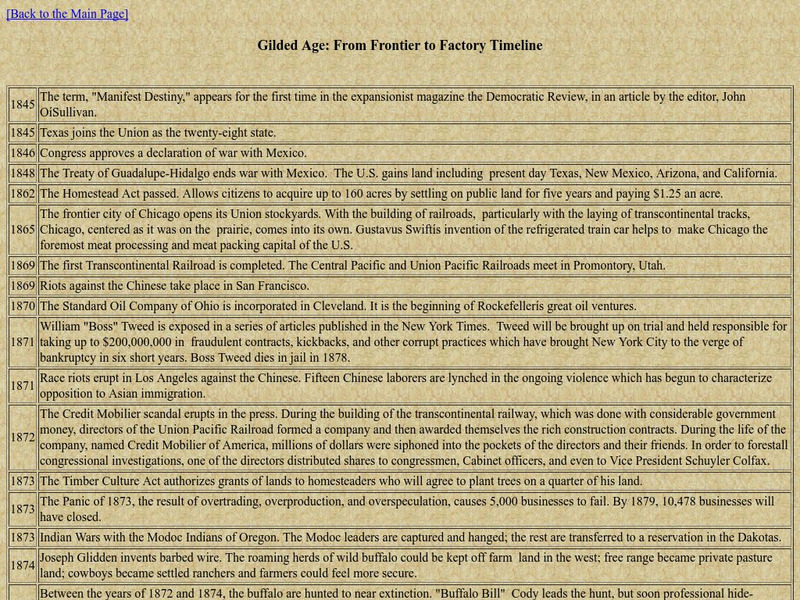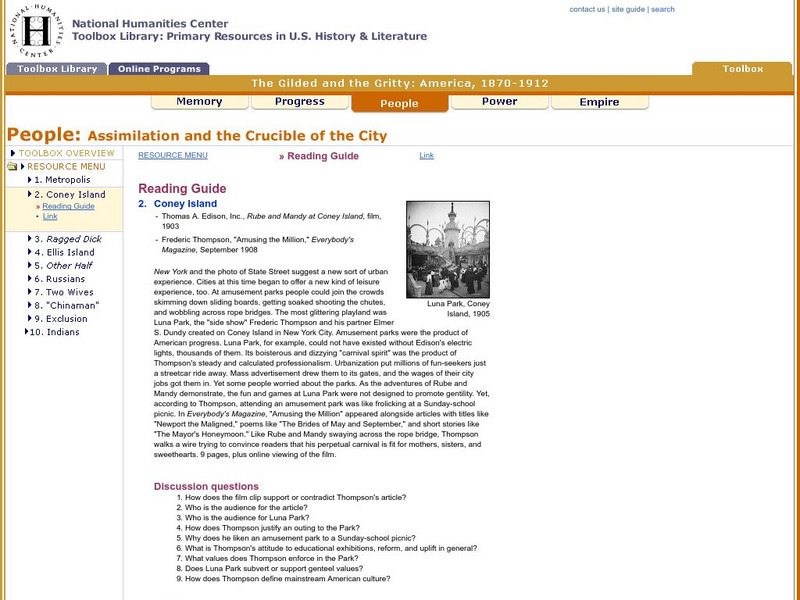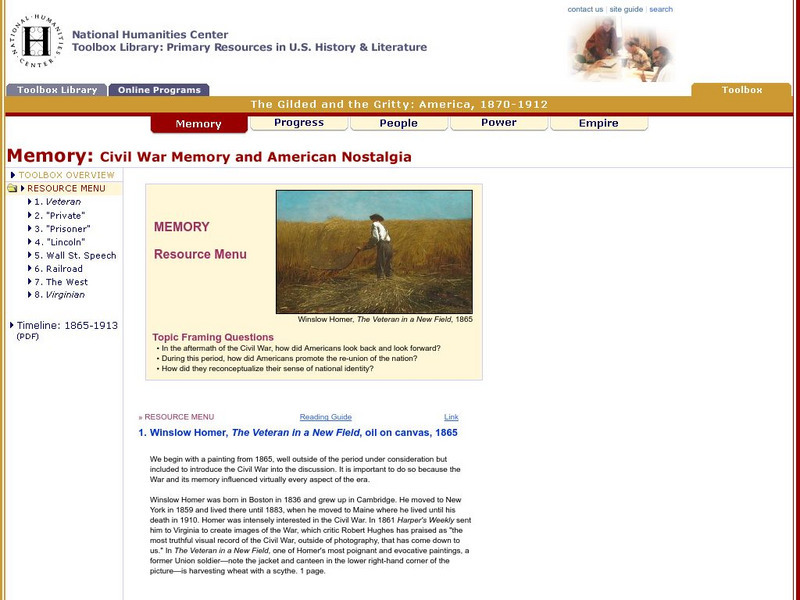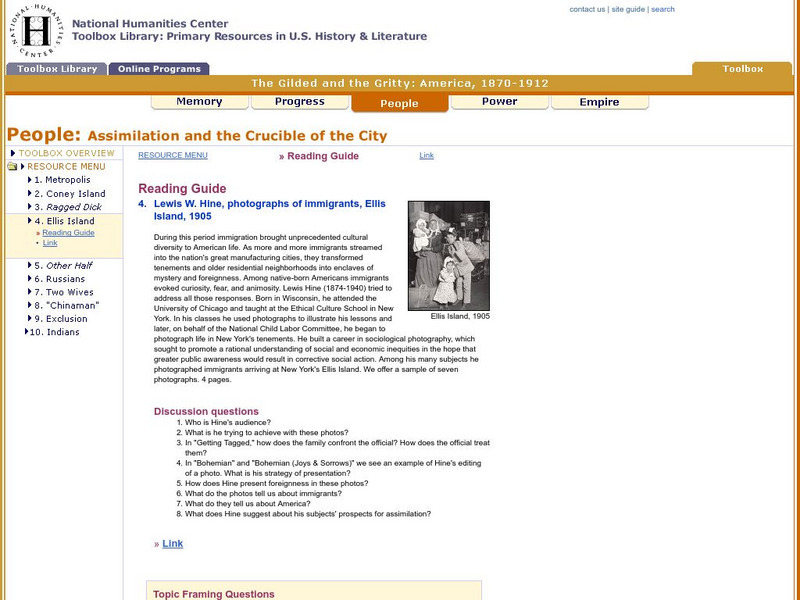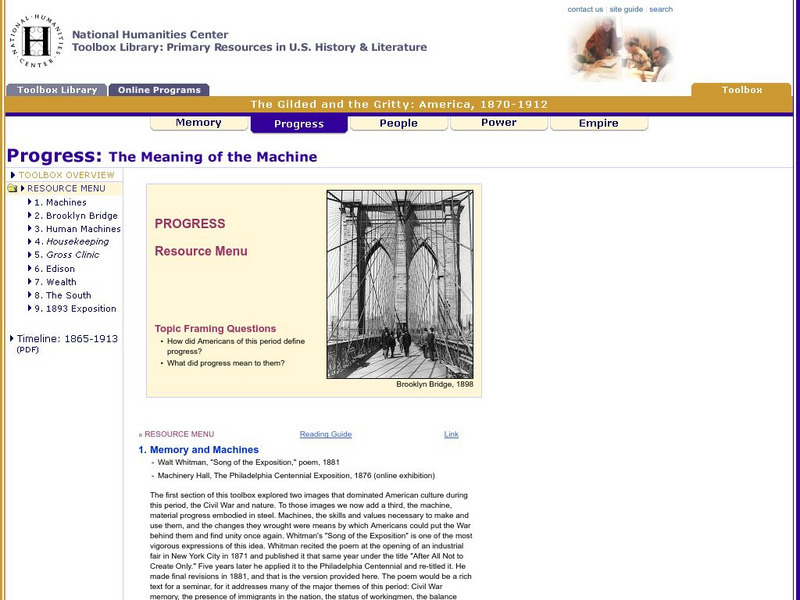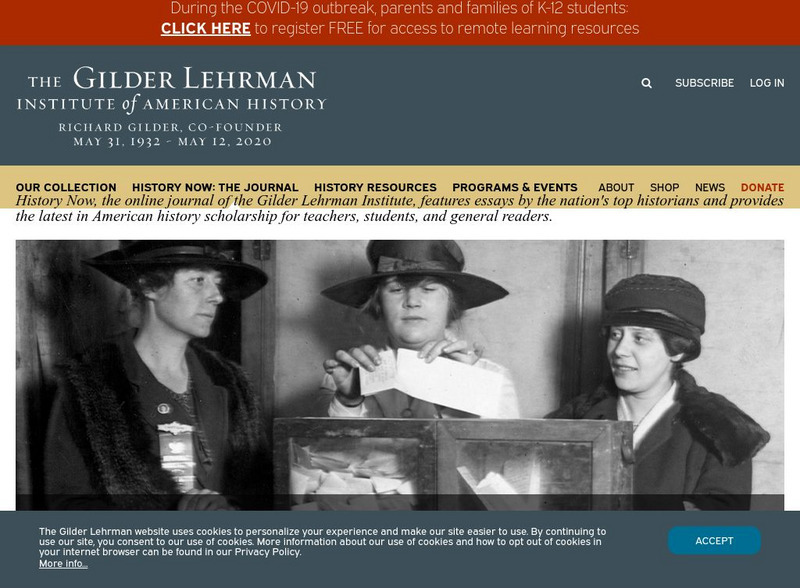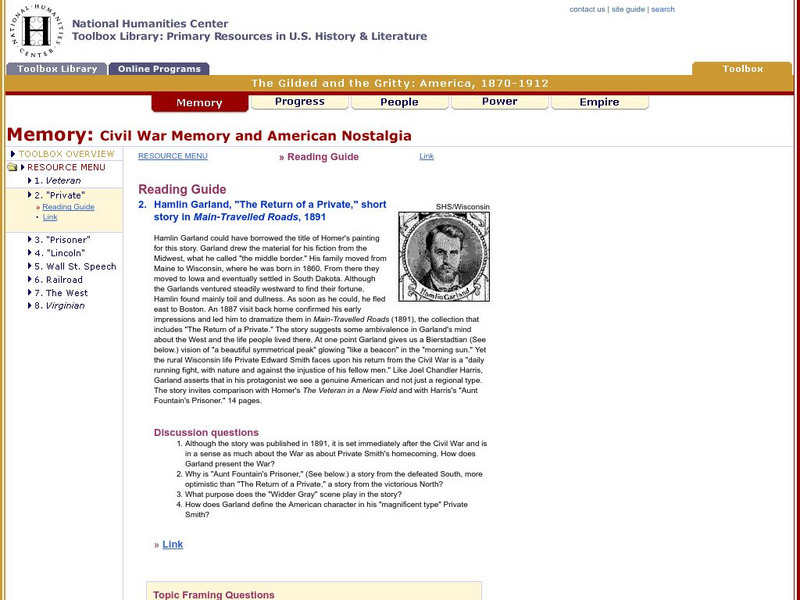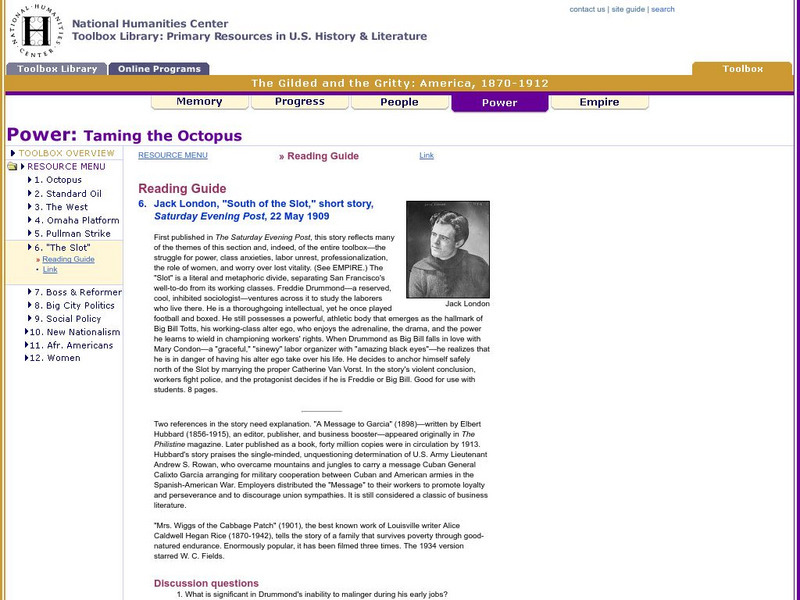Independence Hall Association
U.s. History: Sports and Leisure
Read about the options for leisure time in the Gilded Age for the typical American. Baseball, vaudeville, and bicycling all came into their own in the 1890s.
Vassar College
Vasser College: 1896: Popular Amusements
This 1896, A Website of Political Cartoons site lists concerts, lectures, travelling shows, opera houses, circuses, and more as popular amusements during the Gilded Age
Khan Academy
Khan Academy: Us History: 1865 1898: Quiz 2
A five-question quiz over the rise of industrial capitalism and the Gilded Age.
Khan Academy
Khan Academy: Us History: 1865 1898: Technological Innovation
A quick comprehension check of technological innovation in the Gilded Age.
Other
Gilded Age: From Frontier to Factory Timeline 1845 1916
A timeline that lists major events in culture, military, industry, and politics across three-quarters of a century.
National Humanities Center
National Humanities Center: Toolbox Library: Coney Island, the Gilded and the Gritty: America, 1870 1912
A Thomas Edison film and an essay about the amusement park experience, a new leisure pastime made possible by urbanization and industrialization.
National Humanities Center
National Humanities Center: Toolbox Library: Big City Politics, the Gilded and the Gritty: America, 1870 1912
Ash Can School artist John Sloan's painting Election Night captures the exuberance of urban politics in the early-twentieth century, and artist Henry Glitkencamp's illustration Voting Machines suggests its corrupting power. Both pieces...
National Humanities Center
National Humanities Center: Toolbox Library: Memory, the Gilded and the Gritty: America, 1870 1912
Twelve primary sources - historical documents, literary texts, and visual images - that explore ways in which the memory of the Civil War affected American life in the last quarter of the nineteenth century.
National Humanities Center
National Humanities Center: Toolbox Library: Gross Clinic, the Gilded and the Gritty: America, 1870 1912
Thomas Eakins's controversial painting that reflects the skill of professional, scientific practitioners during the late-nineteenth century.
National Humanities Center
National Humanities Center: Toolbox Library: Ellis Island, the Gilded and the Gritty: America, 1870 1912
This lesson plan examines seven Lewis Hine photographs of recently-arrived immigrants at Ellis Island.
National Humanities Center
National Humanities Center: Toolbox Library: Pullman Strike, the Gilded and the Gritty: America, 1870 1912
An article that describes the Utopian factory town George Pullman built for his workers, a statement of the grievances that led them to strike against the company, the Pullman Company's response, and an editorial speculating on the...
National Humanities Center
National Humanities Center: Toolbox Library: Frontier, the Gilded and the Gritty: America, 1870 1912
Arguably the most famous essay every written about the impact of land on American history, Frederick Jackson Turner's "The Significance of the Frontier in American History" explains how Americans' relationship with the environment shaped...
National Humanities Center
National Humanities Center: Toolbox Library: "Burden," the Gilded and the Gritty: America, 1870 1912
This site includes poems and editorials, some of which that praise, others that harshly condemn what Rudyard Kipling asserted was the "White Man's Burden."
National Humanities Center
National Humanities Center: Toolbox Library: Mark Twain, the Gilded and the Gritty: America, 1870 1912
Two essays by Mark Twain that condemn American foreign expansion and the immorality of imperialism. Includes questions for discussion.
National Humanities Center
National Humanities Center: Toolbox Library: The West, the Gilded and the Gritty: America, 1870 1912
Four nineteenth-century landscape paintings that suggest the meaning of the West in American life.
National Humanities Center
National Humanities Center: Toolbox Library: New Frontier, the Gilded and the Gritty: America, 1870 1912
A speech and an essay that alternately praise the acquisition of foreign territory by the U.S. and that raise questions about the costs and value of these imperialistic adventures.
National Humanities Center
National Humanities Center: Toolbox Library: Wall Street Speech, the Gilded and the Gritty: America, 1870 1912
A "bloody shirt" speech from Robert Ingersoll that emphasizes the virtue of Republican candidates and attacks Democrats as traitors during the Civil War.
National Humanities Center
National Humanities Center: Toolbox Library: Railroad, the Gilded and the Gritty: America, 1870 1912
A speech and an engraving that illustrate how the railroad helped to unite the country after the Civil War.
National Humanities Center
National Humanities Center: Toolbox Library: Progress, the Gilded and the Gritty: America, 1870 1912
Eighteen primary sources-historical documents, literary texts, and visual images-that explore the industrial, racial, and technological progress of the late-nineteenth century.
Gilder Lehrman Institute of American History
Gilder Lehrman Institute: History Now: Immigration in the Gilded Age:using Photographs as Primary Sources
[Free Registration/Login Required] This resource presents a lesson plan about immigration that uses photographs as primary sources.
National Humanities Center
National Humanities Center: Toolbox Library: "The Private," the Gilded and the Gritty: America, 1870 1912
Hamlin Garland's short story, "The Return of a Private", that describes the post-Civil War conflicts for western farmers with nature and with other settlers.
Khan Academy
Khan Academy: Ap Us History: 1890 1945: Introduction to the Age of Empire
Discusses the transition of the United States in the late 19th century from an isolationist country into an imperial power with colonies of its own and the reasons for this abrupt change in foreign policy. Includes questions for students...
National Humanities Center
National Humanities Center: Toolbox Library: "The Slot," the Gilded and the Gritty: America, 1870 1912
A short story by Jack London that examines unrest between capital and labor in early-twentieth century San Francisco.







